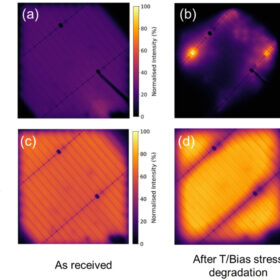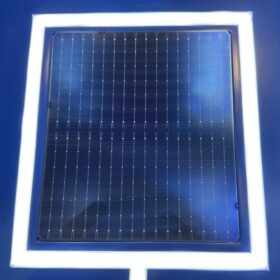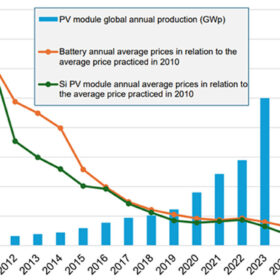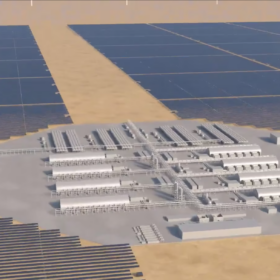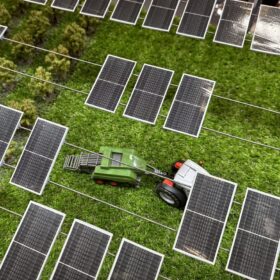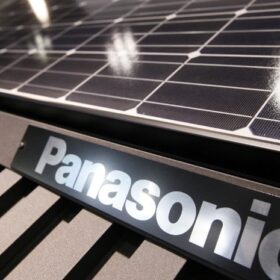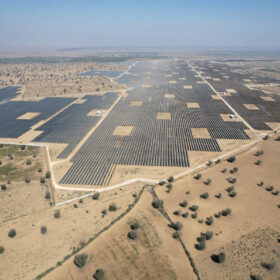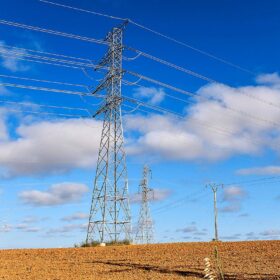Module reliability scorecard reveals widespread quality risk
Independent testing laboratory Kiwa-PVEL has published the 11th edition of its PV Module Reliability Scorecard, having extensively tested PV modules from 50 different manufacturers. The scorecard reveals improvements in energy yield per watt-peak and resistance to potential-induced degradation, but an increase in breakage under mechanical stress and hail simulations, and an overall higher failure rate are cause for concern to many.
Global solar capacity to surpass 7.5 TW in 2035, says GlobalData
UK consultancy GlobalData projected, in figures shared with pv magazine, that global renewable capacity could hit 11.2 TW by 2035, led by solar. It expects cumulative PV capacity to hit 2,378 GW by year-end and 2,849 GW by 2026.
Scientists discover new failure mode in LECO-treated TOPCon solar cells
An international research team has observed a significant increase in series resistance in LECO-treated TOPCon solar cells after temperature and bias treatment. The scientists said they now need to conduct further investigations into its impact on cell efficiency, reliability, and bankability.
All solar cell efficiencies at a glance – updated
The research group led by Professor Martin Green has published Version 66 of the solar cell efficiency tables. There are 21 new results reported in the new version.
Falling Li-ion battery prices mirror solar photovoltaics trends: Is there a role for second-life batteries before recycling?
Lithium-ion batteries are everywhere, powering everything from consumer electronics to electric vehicles, residential PV storage systems, and, more recently, mitigating curtailment in large-scale wind and solar power plants. EVs are driving large-scale demand for Li-ion batteries which will result in substantial volumes of spent batteries in the near future.
Novel Australian technology to fuel 70 GW green hydrogen energy hub
Western Australia’s green fuels developer InterContinental Energy has announced its revolutionary cost cutting nodel hydrogen production system, which allows for the scaling of giga-scale production and is the mainstay of the proposed 70 GW Western Green Energy Hub.
Harnessing the power of agrivoltaics: the future of sustainable land use
With the increasing pressure to decarbonise the energy system while preserving arable land and biodiversity, agrivoltaics is quickly becoming a vital pathway towards sustainable development. A new report from the IEA PVPS Task 13 lays out a compelling vision for how solar energy and agriculture can not only coexist but thrive together.
Panasonic exits solar and battery storage
Panasonic has told its installation partners that it will no longer produce products for the residential solar and storage markets but will continue to offer warranty and installation support for existing and ongoing projects.
Amazon buying big on solar
For the past five consecutive years, tech and retail giant Amazon has been the world’s largest procurer of renewable energy, investing in projects and signing power purchase agreements all over the world. pv magazine spoke with representatives of the company about its ambitious energy plans.
History repeats as Iberian blackout demonstrates urgent need for battery storage
The vast blackout that gripped the Iberian Peninsula on April 28 has echoes of a similar event in South Australia in 2016. The solution in both cases appears to be the same.


